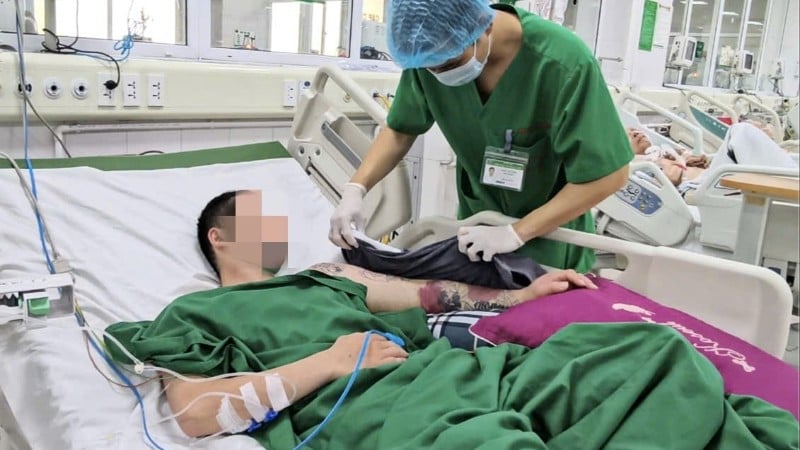
Working as a carpenter in Bac Ninh , CVT (25 years old) went on a delivery trip to Lang Son in early October. He did not know exactly when he was bitten by a mosquito. Five days later, he started to feel a sore throat, fatigue, then a high fever of 39-40 degrees Celsius with a severe headache.
His family took him to the local health station, diagnosed with influenza B, and he was given an IV to reduce his fever. The next day, his headaches and stomachaches worsened, so he went to a private clinic and was diagnosed with a digestive disorder. When his symptoms did not improve, he continued to go to the provincial hospital.
Test results showed low platelets, CT scan showed infiltration around the head of the pancreas, and free fluid in the abdomen. Tests confirmed he had dengue fever.
After 3 days of treatment at the provincial hospital, the patient's condition did not improve, swelling, pain, hematoma and subcutaneous hemorrhage appeared in the left arm-forearm area. Ultrasound results detected a hematoma in the muscle on the left forearm, so he was transferred to the Central Hospital for Tropical Diseases.
At the Emergency Department, Dr. Le Son Viet said that the patient was admitted to the hospital with congested eyes, severe subcutaneous hemorrhage in the left arm and armpit, and platelet count of only 18 x 10⁹/L. Ultrasound software showed hematoma in the forearm muscles, swelling, tension, and pain. Doctors diagnosed Mr. T. with dengue fever complicated by compartment syndrome in the left arm.
Specialist II Doctor Nguyen Hong Ha, senior expert of the Central Hospital for Tropical Diseases, said: Compartment syndrome is a phenomenon of increased pressure on soft tissue in a closed compartment, causing blood to not circulate in the tissue. Initial symptoms are often edema, swelling or hematoma. If edema develops in a closed compartment, where there is little room for soft tissue to expand, compartment pressure will increase.
When the pressure exceeds the capillary pressure, causing the cell exchange to slow down or stop, it will cause ischemia and increased edema. If treatment is delayed, the muscle can die, leading to compartment syndrome, causing irreversible damage to the muscle and nerve, leading to permanent loss of limb function, such as paralysis, loss of sensation, or amputation.
Immediately after being diagnosed with dengue fever with compartment syndrome in the left arm, Mr. T was treated intensively, with hourly intravenous fluids controlled, and pressure in the compartment of the left forearm reduced. After a period of treatment, he recovered well.
Doctor Le Son Viet warns that dengue fever can cause many dangerous complications, not only shock, internal bleeding or organ failure but also muscle bleeding, hematoma, compartment compression or nerve damage. Patients should absolutely not self-infuse or treat themselves at home without medical supervision.
When there are warning signs such as abdominal pain, severe vomiting, lethargy, unusual bleeding, painful swelling of the limbs, the patient needs to immediately go to a medical facility capable of treating dengue fever for timely treatment.
Along with treatment, prevention is still the most important measure. People need to actively kill mosquitoes and larvae, sleep under mosquito nets both day and night, and remove objects that hold stagnant water around the house. Currently, vaccination against dengue fever is an active preventive measure to help reduce the risk of disease and serious complications.
Source: https://nhandan.vn/bien-chung-hiem-gap-cua-sot-xuat-huyet-hoi-chung-chen-ep-khoang-post919158.html





![[Photo] Fall Fair 2025 - An attractive experience](https://vphoto.vietnam.vn/thumb/1200x675/vietnam/resource/IMAGE/2025/10/30/1761791564603_1761738410688-jpg.webp)
![[Photo] Standing member of the Secretariat Tran Cam Tu visits and encourages people in the flooded areas of Da Nang](https://vphoto.vietnam.vn/thumb/1200x675/vietnam/resource/IMAGE/2025/10/30/1761808671991_bt4-jpg.webp)



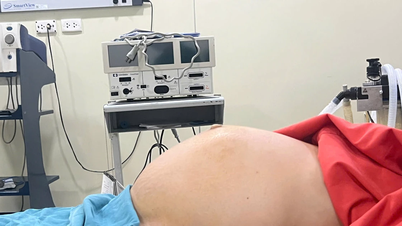

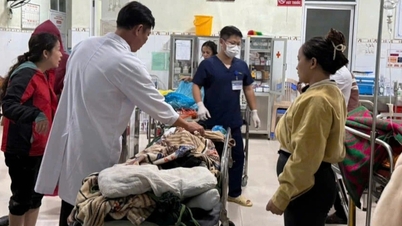
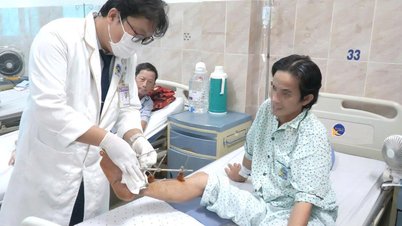


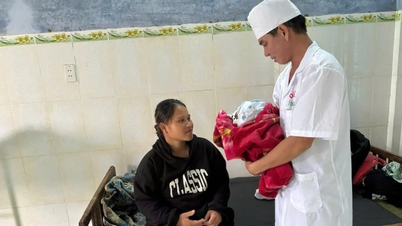










![[Photo] New-era Party members in the "Green Industrial Park"](https://vphoto.vietnam.vn/thumb/1200x675/vietnam/resource/IMAGE/2025/10/30/1761789456888_1-dsc-5556-jpg.webp)










































































Comment (0)